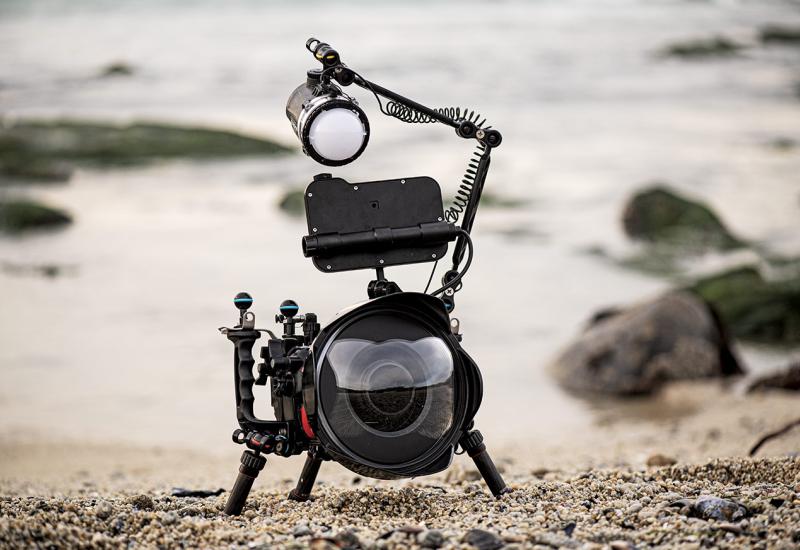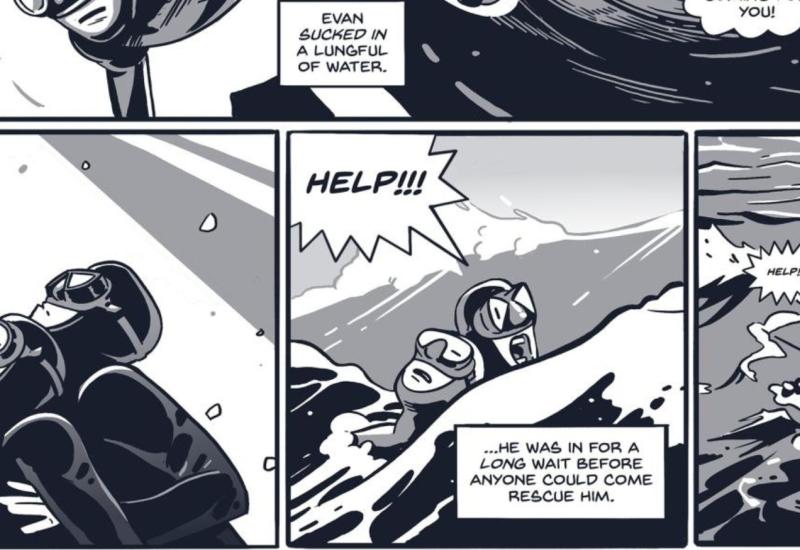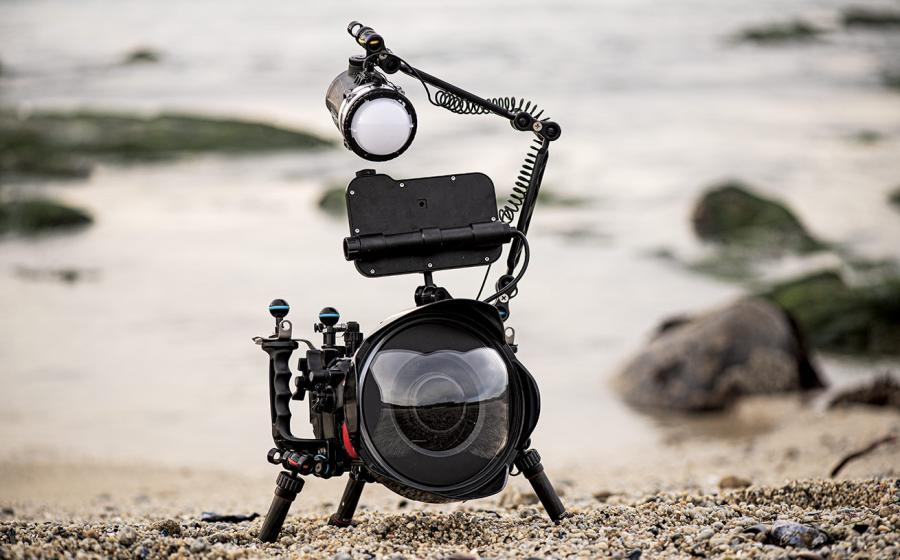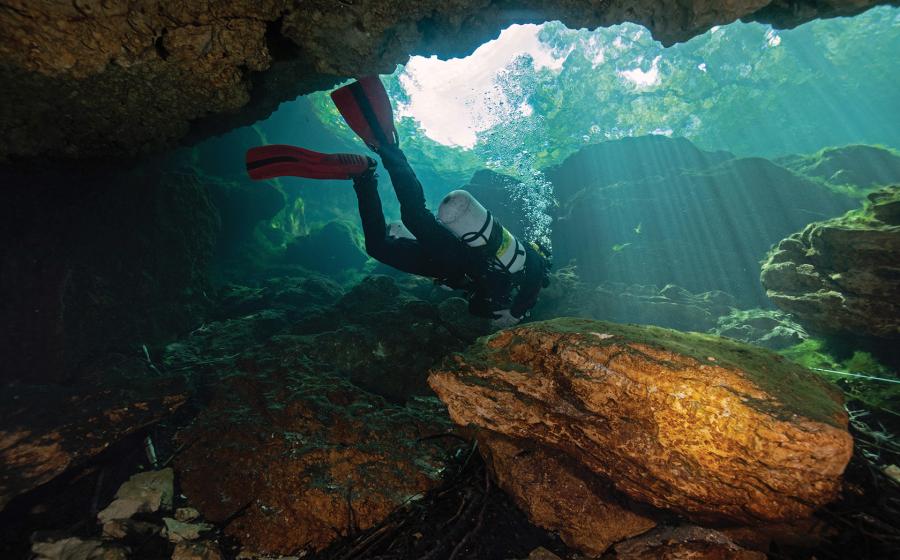17 Useful Tips For Scuba Divers Who Travel
Note: COVID-19 travel restrictions and border closings are constantly evolving. Nonessential travel is banned between some destinations, and others mandate a two-week quarantine period for travelers at the start or end of a trip. Please refer to the U.S. State Department's "COVID-19 Country Specific Information" center for up-to-date information on travel restrictions and coronavirus statistics.
Travel is one of the most exciting parts of the dive life, but with so many destinations, operators and other options to choose from, planning a trip can seem stressful, if not overwhelming. Here are our best tips for booking and executing your next vacation.

Sport DiverIn dive travel, it's all about the destination.
Picking Your Next Dive Destination
Looking for the perfect spot to get away? Consider these three things before you book:
1. Budget For most divers, budget is the first thing to consider when deciding where to go. Once you know how much money you have allotted for your trip, do some research into your top three destinations to figure out the total costs of airfare, accommodations and diving for your entire stay.
2. Diving Style Some divers want to plunge into the abyss, riding fast drifts along deep walls. Some are all about wrecks or caves. Others prefer to max out their bottom time looking for exotic fish in shallow reefs. Don’t just assume a destination is right for you simply because a lot of divers go there. Make sure its diving suits your interests.
3. Season Every dive destination has high and low seasons. For some, the seasonal changes can be dramatic. And temperature changes aren’t the only thing to consider. If you’re eyeing a certain animal encounter, check to make sure you’re hitting the right time of year.
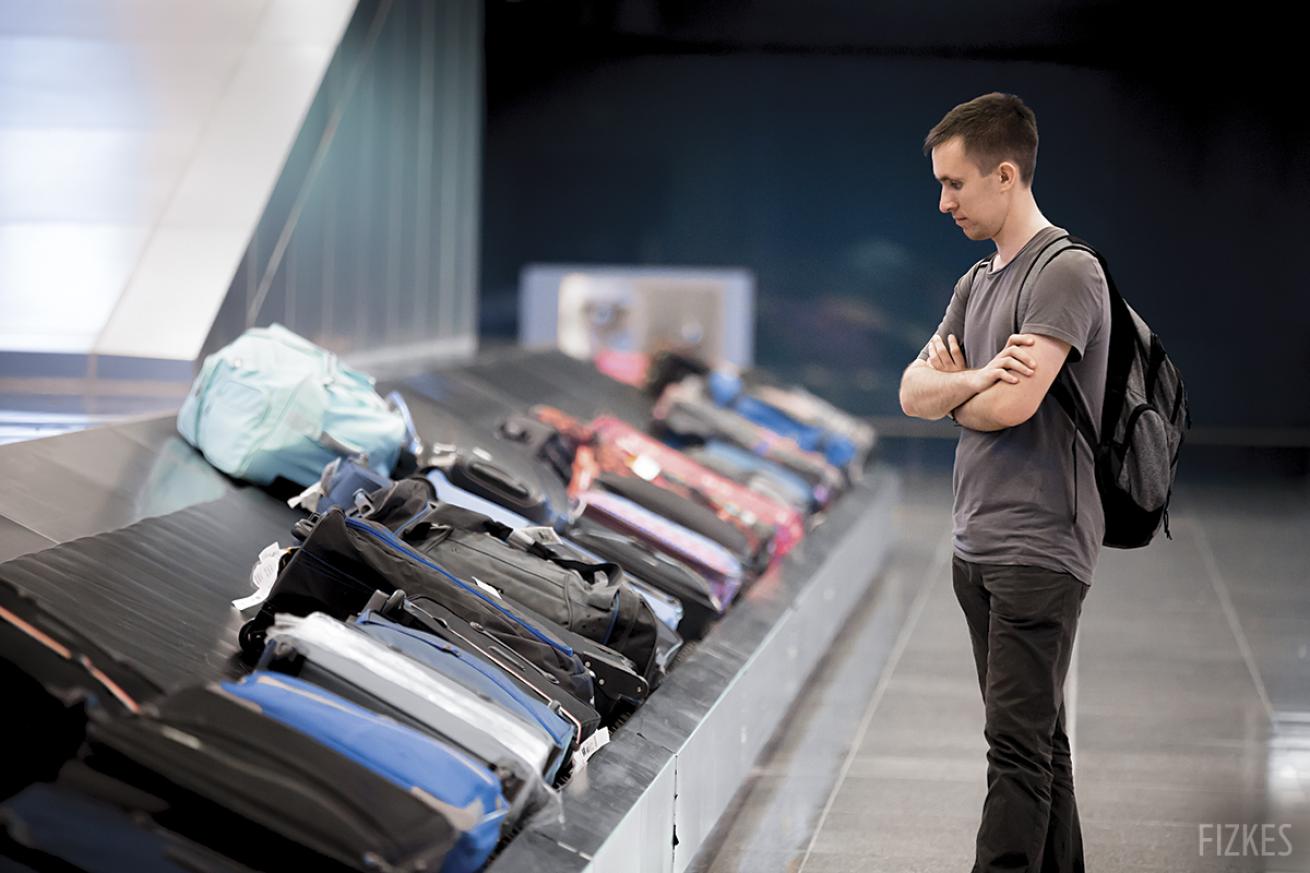
iStockphotoWhen your bags don't come around on the carousel, don't panic.
Dealing with Lost Luggage
If you travel often, chances are this will happen at least once. Keep these three things in mind when your bags don't make it:
1. Report It Immediately Once you realize your bag hasn’t arrived, find the lost-luggage office and report it. Even if they say the gear is on its way, be sure to file a report and get a copy; don’t leave without a phone number or other method for following up.
2. Know Your Rights Airlines’ responses to lost luggage can vary, but there are guidelines in place. In 2009, the DOT made regulations requiring airlines to cover “all reasonable, actual and verifiable expenses related to baggage loss, damage or delay.” For flights within the United States, the max amount is $3,400; for international flights, the max reimbursement usually is $1,800.
3. Show Proof The airlines’ compensation limits apply only to verifiable losses. But what if you don’t have receipts for everything you packed? “Lay your luggage out on the floor and take a photo of it alongside that day’s newspaper,” says Phil Sylvester, of World Nomads.
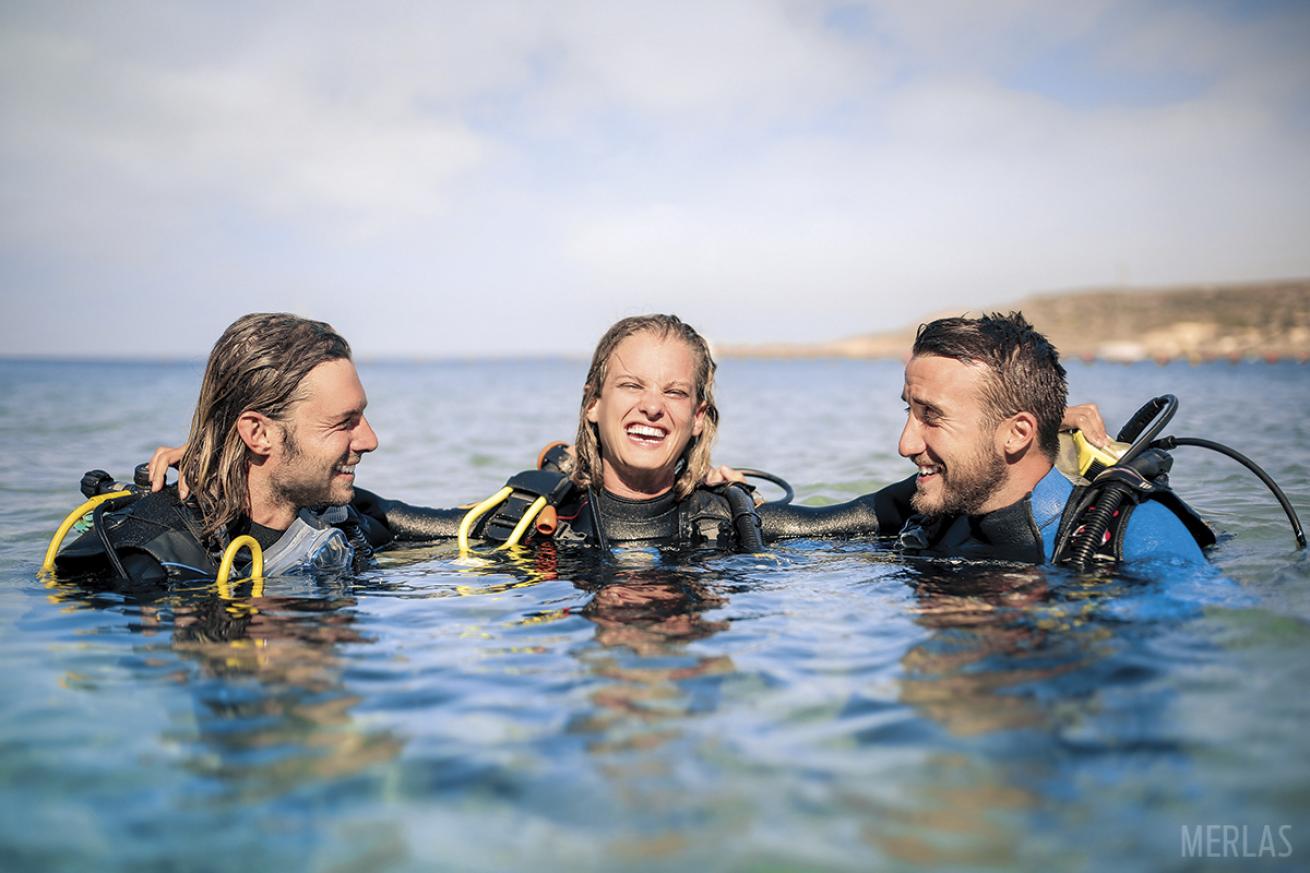
iStockphotoPick an operator that will ensure a fun, safe diving experience.
Vetting a Dive Operator
Finding a reliable operator in a remote corner of the world can be tricky. These three tips can help you find the perfect shop:
1. Consider Your Dive Type At most dive destinations, you’ll find everything from resort-based shops that lean heavily on beginner-level classes to specialty shops with the gear and experience for tec diving. Create a list of dive shops that best fit your interests and experience level. Some important things to look at are the size and number of their boats, availability of nitrox and selection of rental gear.
2. Are They Established? You might find dive operators that look good online but turn out to be little more than a guy with a boat, and they might not have the equipment to deal with emergencies. A good rule of thumb is to look for PADI Dive Centers and Resorts, which must meet rigorous requirements for their services and safety protocols.
3. Get in Touch Once you’ve narrowed your choice to two or three dive operations, pick up the phone or send an email. There’s no substitute for actually speaking with someone at the dive center.

iStockphotoEnsure a comfortable stay filled with the amenities you need.
Getting the Best Hotel Room
Looking for luxury? Follow these tips to get the most out of your stay:
1. Book Directly Calling the hotel or resort directly is the best way to get the room and amenities you want. Not only can the booking agent give you recommendations based on your needs, but they also have the power to offer upgrades or extra perks that just aren’t available online.
2. Ask the Right Questions When booking your room, ask pointed questions. For example, asking if the hotel has recently been renovated could let you know that rooms on a particular span of floors are newly outfitted with upscale amenities.
3. It Never Hurts to Ask From Wi-Fi access to drinks, there any many small amenities that hotel staff has the power to discount or give to guests at no charge. Sometimes simply asking for a discount on these services is enough to get one, but you never know unless you try. Some services are offered at discounted rates at the time of booking, such as adding on a breakfast option.
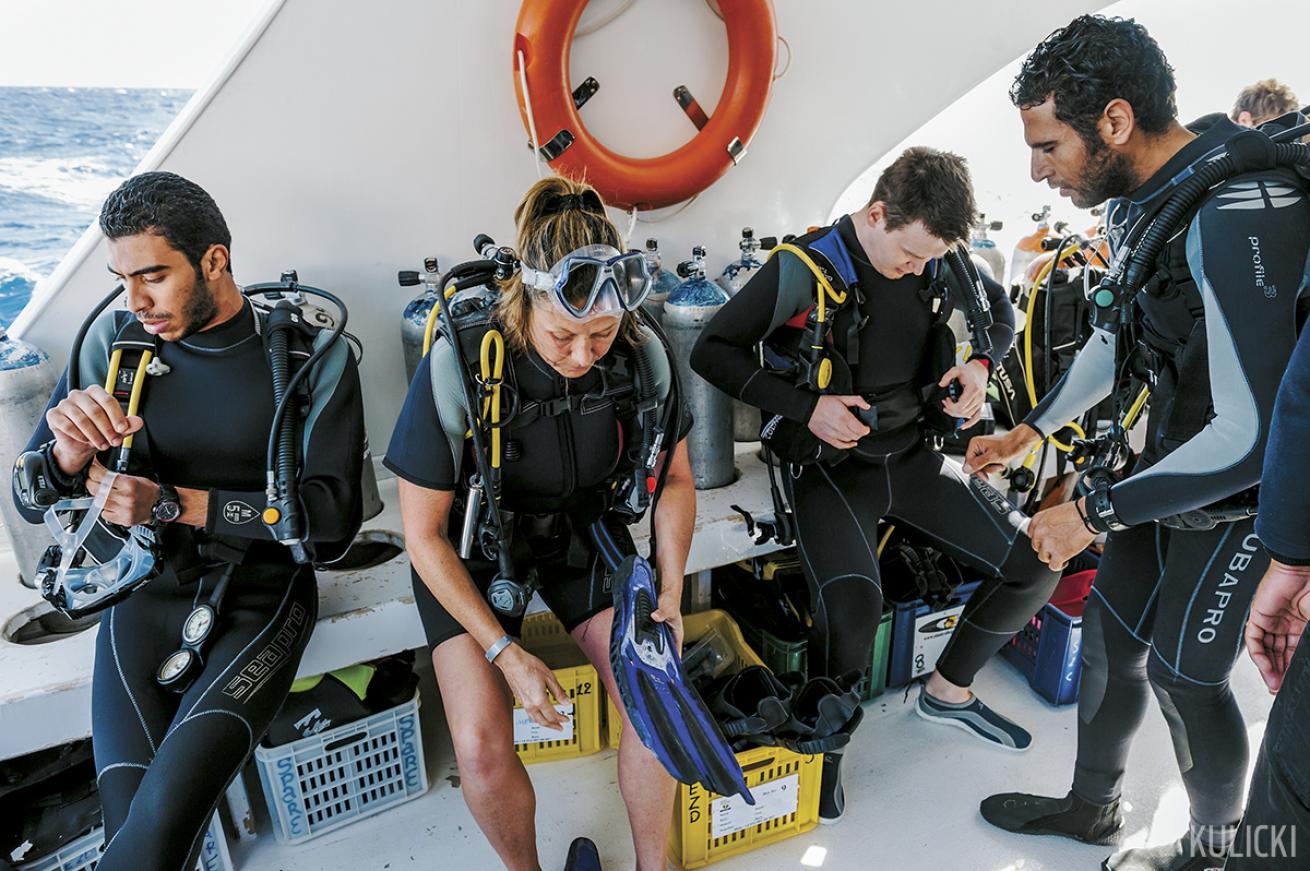
iStockphotoKeeping your gear tidy and organized can make all the difference on a boat.
Making the Most of Your Trip
When you've finally booked that dream vacation, here's how to rock your trip:
1. Choosing Which Pieces of Gear to Pack Renting gear can take much of the stress out of packing for a dive trip, but diving with familiar gear that fits perfectly makes things more enjoyable and safe. If renting appeals to you, make sure to take your mask and dive computer. You’ll be more comfortable wearing a mask that fits well, and you won’t need a crash course in learning how a rental dive computer works. Plus, you won’t need to download your dives before you head home.
2. Preventing Gear Mix-Ups From the muck of Lembeh Strait to the surging open ocean off the Galapagos Islands, exotic destinations are magnets for traveling photographers. So it stands to reason that you might share a dive boat with several other shutterbugs. Write your name on all underwater camera gear and accessories (use a silver Sharpie marker on black items) or affix waterproof stickers with your name written on them. Many photographers have the same camera rig, and this prevents getting them confused.
3. Ensuring You Never Miss a Dive Pack redundant gear, such as an extra mask and plenty of spare parts and tools, when you are diving somewhere remote. In some areas, gear repair and parts may not be readily available. You might never need any of it, but someone else will — and love you for saving their trip.
4. Keeping Your Precious Cargo Safe Trust us: No spot on a dive boat is truly safe from getting wet. A dry bag that doubles as a backpack means you can easily carry it on scuba and land excursions. Remember, the devil’s in the details. Make sure the material is truly waterproof — nylon coated with a waterproof material or vinyl — and has closures that won’t let H2O in. And when packing a dry bag, be selective. It's great to have a camera on hand, but do you really need three hats?
5. Keeping Things Tidy on a Liveaboard Buy a few cheap over-the-door hooks that you can stash in your luggage and use in your berth. They’ll come in handy for hanging your toiletries bag, small day backpack and bathroom towel so your bunkmate doesn’t confuse yours for his or hers, and help clear the clutter in tight quarters. Leave them behind for the crew to use.

